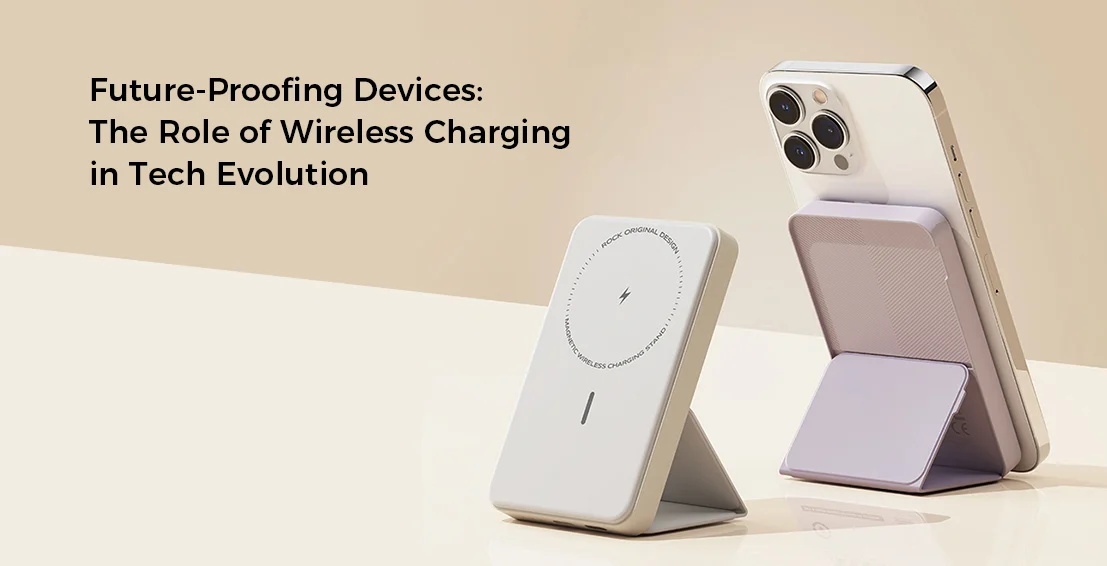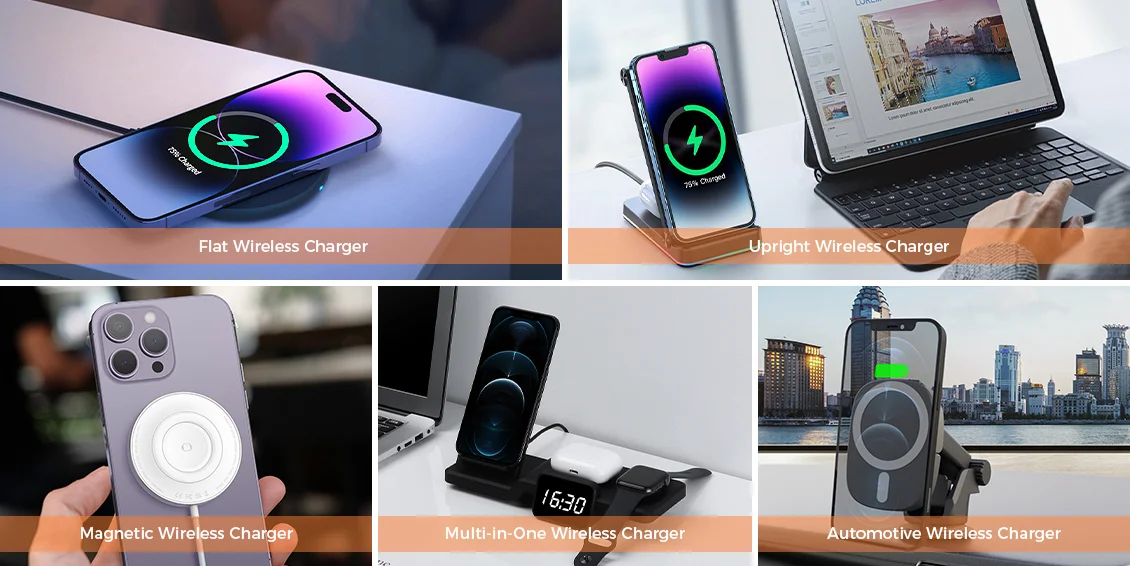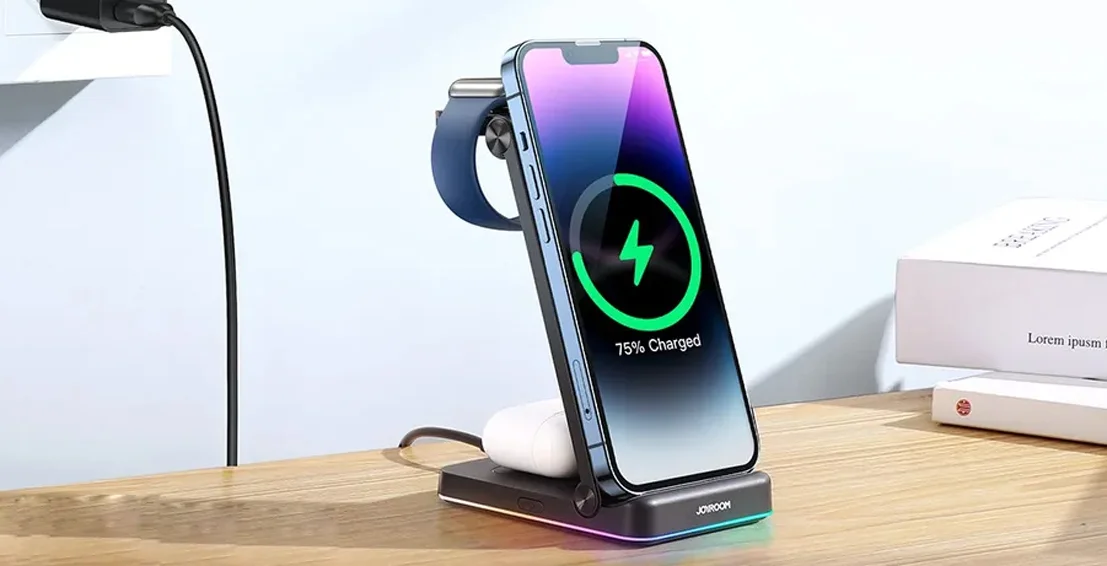Устройства с перспективой: роль беспроводной зарядки в эволюции технологий
Устройства с перспективой: роль беспроводной зарядки в эволюции технологий

In an era marked by relentless technological advancement and escalating dependence on electronic devices, the significance of adopting a future-oriented approach cannot be overstated. The archaic practice of plugging and unplugging cords for charging is rapidly fading, making room for a novel charging experience - wireless charging. This article delves into the multifaceted realm of wireless charging within the sphere of technological progress, brought to you by TVCMALL.
Unveiling Wireless Charging
Wireless charging technology operates on the principle of electromagnetic resonance, facilitating the transmission of electric energy between devices sans the necessity for physical contact. This technological innovation heralds a paradigm shift in power transmission, surmounting the constraints of conventional charging methodologies and furnishing heightened convenience for powering electronic devices.
The Evolution of Wireless Charging
- Electromagnetic Induction (Late 19th Century): Nikola Tesla pioneered electromagnetic induction, generating a magnetic field through a coil's current and thereby inducing current in a separate coil. However, this method was marred by efficiency and distance limitations.
- Electromagnetic Radiation (Early 20th Century): Experiments were conducted using electromagnetic waves for energy transfer, yet encountered inefficiency and radiation hazards.
- Radio-Frequency Identification (Second Half of the 20th Century): RFID emerged for item identification, laying the groundwork for wireless charging exploration.
- Inductive Coupling (Early 2000s): MIT introduced the concept of inductive coupling, enhancing energy transmission efficiency by fine-tuning the frequencies of transmitting and receiving coils.
- Qi Standard (2010): Anchored in inductive coupling, the Qi standard propagated the widespread integration of wireless charging capabilities in smartphones, electric toothbrushes, and more.
- Medium-Range Charging: Recent times have witnessed the application of radio-frequency waves and laser technology for medium-range wireless charging, encompassing electric vehicle charging.
- Contemporary Applications: Wireless charging has found extensive utility in domains such as mobile phones, headphones, watches, and electric vehicles, accompanied by continuous technological strides to augment efficiency, safety, and user convenience.
Types of Wireless Chargers

Pros and Cons of Wireless Charging
Pros
- Convenience: In comparison to conventional phone chargers, wireless phone chargers provide a one-to-many charging solution, mitigating issues arising from incompatible interfaces. This obviates problems stemming from recurrent plugging and unplugging, safeguards the phone interface, and presents a user-friendly option for the elderly.
- Safety: Wireless phone chargers incorporate multiple safety features, including safeguards against overcharging and foreign object detection, guaranteeing user safety throughout the charging process.
- Durability: The power transmission components of wireless phone chargers are encased, warding off degradation caused by airborne moisture and oxygen. The absence of contact points minimizes mechanical wear arising from frequent connection and disconnection.
- Aesthetics: Wireless charging declutters cable spaces, enhancing the neatness of charging areas and contributing to an overall sense of tidiness.
- Environmental Friendliness: Traditional wired charging methodologies engender substantial cable waste, exacting a toll on resources and the environment. Wireless charging mitigates cable consumption, curbing the generation of electronic waste and fostering sustainable practices.
Cons
- Efficiency Loss: Wireless charging tends to incur greater energy loss in contrast to wired charging, attributable to heat generation and electromagnetic radiation during energy transmission. This may lead to reduced charging efficiency.
- Cost: Owing to the distinctive principles governing wireless charging, powered devices necessitate electronic components for power conversion. Both devices entail coils and high-frequency wave circuits to ensure electromagnetic compatibility, resulting in elevated costs compared to conventional wired chargers.
- Charging Speed: Present wireless charging technology typically lags behind wired charging in terms of swiftness, especially in the realm of rapid charging. Consequently, devices may take longer to attain full charge.
- Distance and Alignment Restrictions: Wireless charging often mandates precise spacing and alignment between the charger and the device. Incorrect device placement on the charger can impede charging efficiency.
In Conclusion
The marvel of wireless charging technology is reshaping our lives, transmuting charging from a constraint into a seamless, instinctive process. Despite encountering challenges, it ushers forth an array of affirmative impacts. Driven by unceasing technological advancement, wireless charging technology is poised to surge ahead, unveiling fresh prospects for our future. Let's embark on this thriving trajectory together!
FAQs
Q: Is wireless charging safe?
A: Wireless charging is generally safe, yet prudent operation (such as avoiding overcharging and preventing contact with liquids or metal objects) along with the use of reputable devices remains crucial to ensure safety. For concerns related to wireless charging, consulting relevant information furnished by manufacturers or experts such as TVCMALL is advisable.
Q: Which devices are compatible with wireless charging?
A: Numerous smartphones, tablets, and portable devices support wireless charging. However, not all devices are attuned to this mode of charging. Devices adhering to the Qi wireless charging standard typically harmonize with Qi chargers.
Q: What should I do if my device fails to charge or overheats during charging?
A: If the wireless charger functions properly and your device aligns with the Qi standard for wireless charging, several factors could contribute to the issue:
1)Incompatibility between the charger and the device;
2)Incorrect positioning of charging coils;
3)Interference from obstructions;
4)Charger or device malfunction;
5)Overheating due to elevated temperatures.
In the event that the problem persists despite addressing these factors, reaching out to the device manufacturer or a proficient repair center is advisable for further guidance.
Q: Does wireless charging support fast charging?
A: The compatibility with rapid charging hinges on specific product specifications and technical provisions. Select high-end wireless chargers support rapid charging, proffering outputs exceeding 15W, thereby expediting charging durations. However, certain lower-tier wireless chargers might not support rapid charging and may solely provide leisurely charging rates. It is thus imperative to meticulously scrutinize product specifications before purchase to ascertain the presence of rapid charging support.
Q: Can wireless charging adversely affect battery lifespan?
A: Although wireless charging does exert some influence on battery life, the repercussions are milder compared to wired charging. Wireless charging not only presents a safer and more reliable charging mechanism that circumvents the risks associated with impacts and plug insertions/removals, but it also facilitates speedier charging without inflicting additional harm to the battery.
Оставить комментарий
Ваш адрес электронной почты не будет опубликован. Обязательные поля помечены *
Будьте в курсе с оптовыми продажами TVCMALL
Подпишитесь бесплатно на наш блог и получайте экспертные советы, отраслевые идеи и лучшие оптовые предложения. Увеличьте свои продажи с TVCMALL уже сегодня!



